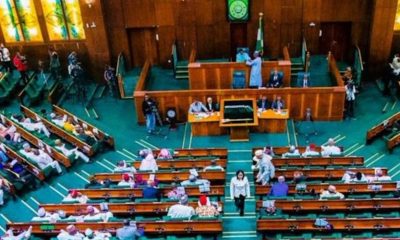- as telcos slow down operation
Economists have predicted that Nigeria would gradually move out of recession by the end of June, but several things may have been affected by it, which has given rise to worry and fear in the information and communication technology (ICT) industry.
The industry had recorded a lot of success and firsts globally but recent developments may upturn some of the successes recorded so far. Last week, the Nigerian ICT sub-sector witnessed a mass sack by one of the foremost operators, MTN Nigeria. Other telecoms service providers have also disengaged some staff owing to the same reason of recession.
In the wake of the retrenchments, MTN Nigeria said it was unrelentingly committed to Nigeria, “And continues to execute its strategy of attracting, developing and retaining the best Nigerian talent. This is in line with the ongoing business transformation to drive sustained growth and thereby facilitate our continued role as a partner for progress and socio-economic development in Nigeria.”
Another incident that also shook the industry was the continued drop in number of subscribers turning away from Internet usage in the month of March.
This, according to industry watchers, is due to recession and growing poor quality of service, which could be blamed on the ban on IT equipment from access to foreign exchange.
Mostly, IT equipment form part of 41 items restricted in forex access by the Central Bank of Nigeria (CBN).
From the website update of the Nigerian Communications Commission (NCC), Internet subscribers stood at 90,003,101, showing that about 26,081 left the service.
The data indicated that Internet users on both global system for mobile communications (GSM) and code division multiple access (CDMA) networks dropped from 90,029,182 in February to 90,003,101 in March.
Out of the 90,003,101 Internet users in March, 89,972,792 were on GSM networks, while 30,309 users were on CDMA networks.
ALSO SEE: How national roaming will work – ATCON
Also, GSM service providers lost 26,081 Internet customers after recording 89,972,792 users in March, as against 89,998,873 in February. The CDMA operators retained 30,309 Internet subscribers in March, the same figure recorded in February 2017.
The data showed that MTN had 30,519,351 subscribers browsing the Internet on its network in the month under review, an increase of 218,646 subscribers in March, after recording 30,300,705 in February.
For Globacom 27,021,200 customers were surfing the Net on its network in March, an increase of 88,715 users from the 26,932,485 that used the Internet on the network in February.
Airtel had 19,468 Internet users in February, showing a decline of 44,924 customers from 19,423,760 recorded in March.
The data also showed that Etisalat had 13,008,481 customers who browsed the Internet in March, amounting to a decrease of 288,518 users from the 13,296,999 users recorded in February. While the CDMA operators, Multi-Links and Visafone, had a joint total of 30,309 Internet users on their networks in March, maintaining the same record of February. And Visafone had 30,305 customers surfing the Internet in March, with Multi-Links left with just four Internet users.
Meanwhile, at the Bangkok ITU Telecom World 2016, immediate past Secretary General of the International Telecommunications Union (ITU), Dr. Hamadoun Toure, during the Nigerian Telecoms Investment Forum, said Nigeria was a preferred destination for telecommunications investors in Africa because of its impressive figures of $68 billion investment, and out of the figure, $35b comes from foreign direct investments (FDIs).
Experts have asked, will the story be the same in a couple of years? Before MTN’s mass sack, Etisalat Nigeria had owed GTB N42 billion, N40 billion to Access bank and Fidelity Bank 17.5 billion because of volatile global oil prices.
Commenting, Managing Director, Pinet Informatics Ltd, Mr. Lanre Ajayi, said the major challenge was undefined galloping of the exchange rate of the dollar to the naira, which has affected the industry adversely, among other challenges.
“ Multiple taxation is there, problem of getting Right of Way (RoW) has not gone away and the auction of 2.6Ghz spectrum is being delayed by the regulator.
“The number of telephone lines are decreasing instead of increasing and the growth is gliding towards being stunted,” he said.
Ajayi, the immediate past president of the Association of Telecommunications Companies of Nigeria (ATCON), further explained that the industry would not collapse but it could experience stunted growth; he also said that, with expectations of economic recovery by mid-year 2017, some of the challenges would be resolved.
ATCON president, Olusola Teniola, advised the federal government to cushion the effects of recession in the country, because more workers might be laid off and sent into the teeming job market.

 Health1 week ago
Health1 week ago
 Crime3 days ago
Crime3 days ago
 Crime5 days ago
Crime5 days ago
 Crime4 days ago
Crime4 days ago
 Comments and Issues1 week ago
Comments and Issues1 week ago
 News4 days ago
News4 days ago
 News1 week ago
News1 week ago
 Crime6 days ago
Crime6 days ago







